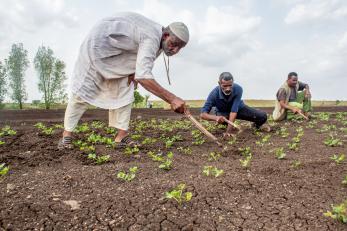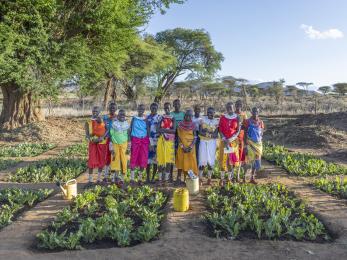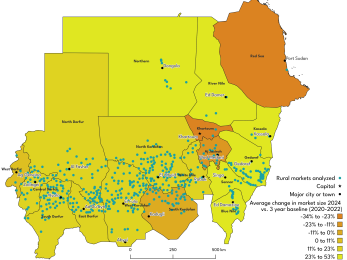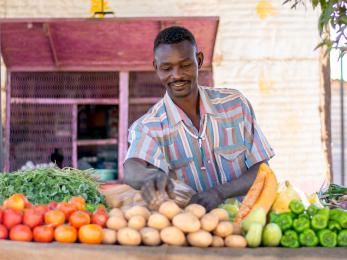Beyond the Numbers: Hunger and Conflict in Sudan

The brutal conflict that erupted between the Sudanese Armed Forces (SAF) and Rapid Support Forces (RSF) in April 2023 has compounded an already dire humanitarian crisis in Sudan, plunging millions into catastrophic needs.
The unanimous adoption of U.N. Security Council resolution 2417 in 2018 was a milestone that established a global consensus on the need to address the links between conflict and hunger. Today, however, Sudan’s conflict has fueled a hunger crisis of historic proportions. It has already become the primary cause of suffering for people across the country, and without urgent action, it will soon claim more lives than the fighting.
Based on testimonies from people in Sudan combined with crisis analysis, this new report by Mercy Corps, the Norwegian Refugee Council and Danish Refugee Council reveals the direct and indirect ways in which the conflict and widespread violations of international humanitarian law have led to suffering and starvation countrywide.
Key findings
The hunger crisis is human-made
The parties to the conflict have heavily disrupted the food system, triggered mass displacement and decimated livelihoods. They have also impeded the delivery of humanitarian relief, deliberately obstructing access to aid for millions of people in desperate need.
Hunger is not simply a byproduct of conflict
It is the result of deliberate choices by warring parties to disregard basic international laws. They have failed to protect civilians and essential infrastructure, including food supplies, and have blocked aid from reaching those in desperate need. As a result, hunger has become a weapon of war.
The full extent of the crisis is hidden
Lack of sufficient data hides the true scale of food deprivation, starvation and death, particularly in Darfur, Kordofan, and Khartoum. This report’s first-hand testimonies from affected communities reveal a harrowing situation that must trigger immediate international action.
Calls to action:
In interviews with communities and aid workers, several calls to action emerged:
Mitigate the impacts of the conflict: The immediate priority for affected people is an end to the fighting. While a nationwide ceasefire appears to be out of reach, priority should be given to ensuring respect for international humanitarian law. This includes facilitating rapid and unhindered access for humanitarian staff and supplies across borders and frontlines and protecting civilians and essential infrastructure from indiscriminate attacks.
Improve people’s purchasing power: Many communities expressed their desire to be supported with cash assistance and more livelihood opportunities to enable them to buy food and other basic necessities from local markets and service providers.
Boost food production: Farmers were clear that a successful agricultural season and increased food production depend on improved security, the removal of explosive remnants of war from farmland, and their ability to afford agricultural inputs and labor.
Support local resilience networks: Against all odds, local communities have found ways to revive markets and organize themselves into lifesaving mutual aid groups. They need cash support and liquidity, including e-cash and safety guarantees to sustain and scale up their work.
Address protection risks: Community members expressed fears for children, women, and girls who face increased threats of abuse and exploitation because of the lack of food. The humanitarian community and hunger watchdogs should monitor and address the protection implications of hunger before these threats become entrenched, making it even more difficult to protect the most vulnerable.


